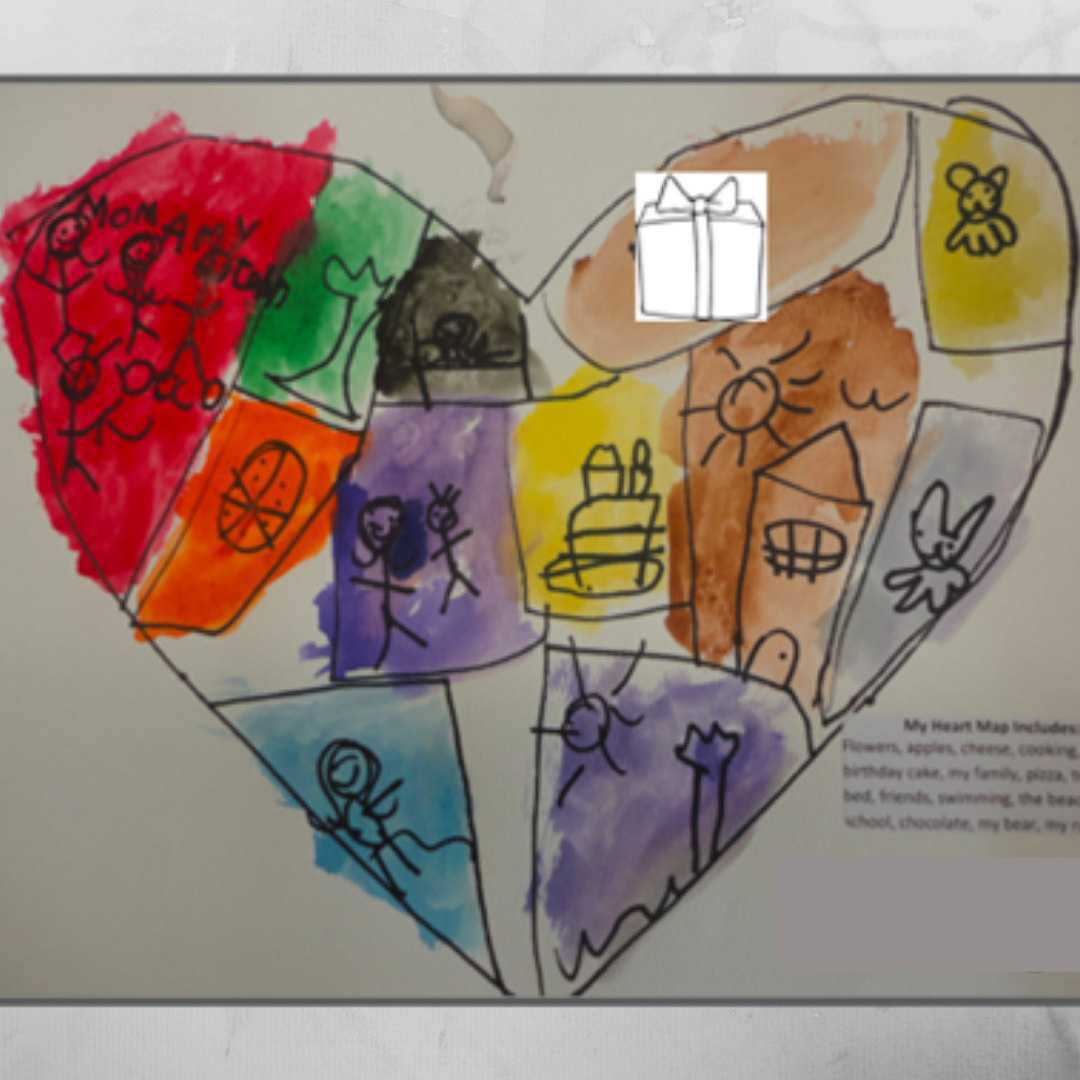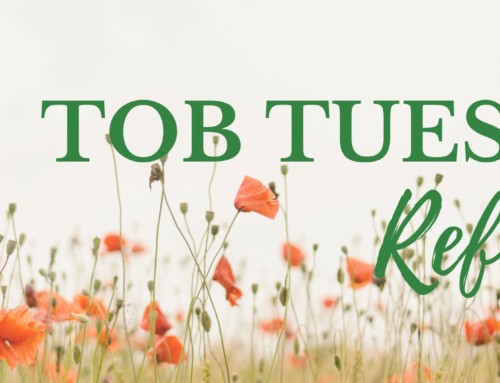(I apologize for the delay in posting this week’s blog. Due to severe jet lag along with needing permission from the Awesome Aussies I quote in this blog, it took longer than normal to get this blog ready for publication. Enjoy!)
When it comes to the Theology of the Body (TOB), the U.S. Catholic Church is the “elder brother” in the TOB world.
Why do I say this? Through my travels around the world, I observe a significant lack of TOB resources and speakers in other countries. In fact, in many places, the Theology of the Body is still an unknown concept. For instance, when I recently asked a Catholic married man in Australia what his understanding of TOB was, he thought it had something to do with the body being fit. I assured him it was more than that.
Likewise, when I spoke in Sydney at two different young adult events held in pubs (similar to Theology on Tap), many of those present associated TOB with sex and chastity, and therefore primarily with explaining why we shouldn’t have sex before marriage. This impression of TOB always amuses and concerns me because it causes people to avoid attending one-day (or longer!) workshops on TOB. In their minds, why would anyone attend a whole day dedicated just to sexual abstinence? How boring and moralistic that would be!
Frankly, I agree. I wouldn’t want to attend a whole day dedicated only to sexual abstinence. And that’s precisely why a new calling is forming within me, thanks to leadership guru Simon Sinek and his unrelenting emphasis on finding your “Why?” So, I accepted the “Finding your why?” challenge and came up with this mission statement: “To spread Theology of the Body around the world so that every person can know and experience the Trinitarian-spousal meaning of his or her body and live it passionately.”
How’s that for a mouthful? But Simon’s point is that our mission statements should be something we can never achieve. Or, to use my favorite phrase, there’s always more! And so, true to my mission statement, I have been traipsing Down Under for the past year to bring the full vision of TOB to Catholic-school teachers, catechists, young adults, parents, etc., to Australia.
This Aussie TOB mission began last July with a 5-day (30 hour) immersion course in the content of TOB and was followed up with a 3-day speaker training during Easter Week. Having just returned and while the energy is fresh, I’d like to share with you a couple cameos from the TOB Speaker Training. My hope is that you can experience with me the joy of being the “elder brother” in the faith, of being able to pass on the riches of TOB that have been maturing in the US for over 20 years and are now overflowing to other countries.
I’d like to begin with my favorite moment of the TOB Speaker Training. It occurred on the second full day when the participants were required to draft a 30-minute talk on the sacramentality of marriage and then present a 10-minute summary of their talk. One of the participants, who I will simply call M, was wrestling with this assignment. As a kindergarten teacher, she struggled with how this topic could even apply to her little tykes. Even more, a broken heart from a broken relationship that occurred last summer just before the TOB immersion course was still raw; the last thing she wanted to talk about was marriage.
And yet, her presentation was one of the highlights of the Speaker Training. She used the format of her normal lesson planning to craft her presentation. Here’s how her lesson on marriage for kinder unfolded: Beginning with a prayer circle, she would introduce the idea of gift by having a small gift box and asking the students what could be in it and to think about how special it is to receive a gift. Then she would move into the formal content of her lesson plan that consisted of: 1) Telling the children they are God’s gift to others. 2) Reflecting on how their hands, eyes, feet, and heart are gifts through which they can make a gift of self to others. 3) Exploring ways, they can be a friend [i.e., a gift] to their friends, family, and God. 4) Introducing marriage as a special friendship between a man and woman, a special gift of self. 5) Using the Holy Family as an example of how the special friendship of marriage was shared between Mary and Joseph and with Jesus. 6) Finishing with a closing activity that is already familiar to her kinder kids of a map of their heart in which they draw things that represent who they are, but this time, they would leave a space blank…a then put a gift in that blank to represent that they are a gift. 7) And a final wrap up of praying for married couples using a prayer that M composed: “Dear God,we pray for all married people, that God will give them the strength and love to be God’s gifts to each other all life long.”
When M was done, her fellow participants burst into applause. It was like witnessing a miracle – not only was M able to surmount her own heartbreak, but we all experienced how a topic as complicated as marriage, which is also saddled with a great deal of political-correctness baggage, could be presented to 5-year-olds (in a Catholic school) in a very natural and familiar way. M used ideas that were already familiar to her kids: gift; hands, feet, eyes, and heart; friendship; special friendship; and the Holy Family. Her approach was simple, direct, and theologically correct. My heart swelled with admiration and gratitude for her willingness to fight through the circumstances to overcome personal and professional obstacles.
On the opposite end of the spectrum was S, who already has a flourishing ministry as a TOB speaker. In fact, he’d missed the full first day because he was speaking all day to high schoolers. At the start of the second full day when he re-joined us, I began with some reflections on humility. For many people, interjecting comments about humility may seem out of place within the context of a speaker training, but public speaking has a unique challenge: I call it, “Living for the Applause.”
The first time this happens, it’s intoxicating and unexpected. I know. It happened to me in England in 1999. I had just finished giving a keynote talk under a huge tent to almost 2,000 people, and when I finished, everyone in the tent leapt to their feet and applauded wildly – and the endorphin rush was intoxicating. I also realized it was dangerous. It would be so easy to slip into living for the applause and to measure one’s speaking success by the applause: Standing on stage surrounded by thunderous applause is a peak experience that is easy to crave again and again. But then what happens if the applause doesn’t come, or if your audience – especially teens – don’t give you positive feedback or any feedback at all but rather stonewall you into thinking you’ve failed to reach then? Well, then you slip into questioning your abilities and your call to ministry and self-doubt creeps in. And it’s easy to go searching for the applause for reassurance.
These were some of the thoughts I offered the budding speakers, but S was already deep into a speaking ministry and crafting his identity around being a successful speaker. Without me even being aware of it, my words had pierced his heart. After the course was over, S observed, “Katrina offered a session on humility, and the Lord made it clear to me that this was the reason he brought me to the Speaker Training – to help me assess whether I am in TOB ministry to do God’s will and fulfill my calling, or am I doing this to be ‘seen’ by men?”
Moreover, when S presented his talk just after the session on humility, he hit a wall and went blank. I encouraged him to continue, but his mind remained blank. I encouraged him to “land the plane” of his talk, and finally he was able to compose himself and provide some very meaningful final thoughts. Upon reflection, S said of this experience, “Receiving critiques [i.e., constructive feedback from fellow participants and from me] was not easy, nor was it easy to accept when I blanked out during one of my presentations. The fruits of the course were how God encouraged me in prayer to enter into that ‘blank out’ and be purged (or begin the purgation process) of impurities in my heart. I know this course helped me grow as a person, as a speaker, and as a student of TOB.”
In a way, all of us entered into S’s moment of purgation. We tangibly felt his struggle, and we all knew it could easily have been one of us. S’s vulnerability and willingness to “enter into the blank out” in our midst was a gift to all the participants as to how to handle unexpected and very public moments of humility.
And finally, a last triumphant story as related by R. In observing the transparency and personal self-disclosures of the other participants concerning their own woundedness, R changed her final talk on chastity at the last moment to include her own sexual wounding. Here’s how R described that moment: “Listening to the Holy Ghost, I felt inspired to spontaneously change the focus of my [chastity] presentation and to share something very personal, but something I felt Our Lord had been preparing me to share for a number of years. I then received such an overwhelming positive and encouraging response from the other presenters afterwards!”
Watching R shed tears of joy during her presentation as an expression of the healing God had accomplished in this previously wounded area was one of the most beautiful moments of our entire 3 days together. The fruit of the TOB Speaker Training for R was not simply knowing more about TOB, but, like S, also knowing more about herself. Her most significant take-away, was “realizing that I need to really believe in what I have to offer, that my gifting is unique to anyone else and to grow in confidence in this.” Indeed, R is truly created as a gift to be a gift in a unique way, reminiscent of the same TOB message that M was trying to impart to her kinder kids at age 5.
I hope after reading about these awesome Aussie experiences, the Holy Spirit will re-inspire your own role within the universal Church as the “elder brother,” as a Catholic-Christian who has been blessed with an abundance of resources that can and should be shared with others. I encourage you to pray for and actively seek ways to pass on the faith to others by gifting them with a book on the faith that has been meaningful to you, or sharing a YouTube video link, or a Bishop Baron podcast, or inviting them to join you for an event at your parish, or leading a book study or video series in your home.
In the U.S, we have been blessed with an abundance of Catholic resources and many, many people are waiting to receive from our overflow, both at home and throughout the world. The good news is that we don’t need to live for the applause. We only need to live for how we can be a gift to God and to our neighbor in great humility and gratitude. And remember, as the “elder brother” …you are a gift!
© Katrina J. Zeno, MTS




